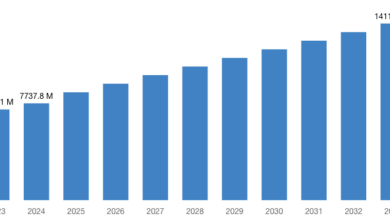Lots of work left to do for WA Cares commission

(The Center Square) – Bills passed this legislative session on WA Cares were just the beginning, the Long-Term Services and Supports Trust Commission learned this week.
The Trust Commission received an update on WA Cares fund legislation and its impact on planning for implementing the mandatory long-term care insurance benefit to be paid for by an added 0.58% payroll tax on workers.
Ben Veghte, director of the WA Cares Fund for the state Department of Social and Health Services (DSHS), and Matt Buelow, with the state’s Employment Security Department (ESD), brought the commission up to speed on this year’s plans.
The commission is made up of legislators, personnel of administering agencies, and stakeholder representatives.
“[House Bill] 1732 delayed implementation of the program by 18 months, so that premium collection now begins in July of 2023 and benefit payment now begins July of 2026,” Veghte said during Monday’s virtual meeting.
The payroll tax for WA Cares was supposed to kick in on Jan. 1, but that plan was derailed in part by lawmakers concerned about people paying into the program who would not be eligible to receive benefits, including a lawsuit by Washington workers who live out of state with no plans to retire in Washington.
Other challenges included what critics called a narrow one-time opt-out and the crashing from overuse of a website that was supposed to facilitate opt-outs.
“The bill also added eligibility for pro-rated benefits for people born before 1968, so-called new retirees, whereby for every year that a person works they earn 10% of the lifetime benefits,” Veghte told the commission.
He also mentioned this year’s passage of House Bill 1733, which lets disabled military veterans opt out of the program, since they already receive long-term care coverage through the federal government.
The same law also creates new exemptions for temporary nonimmigrant workers, military spouses, and people who work in Washington but live elsewhere.
“Those four groups now have the opportunity to apply for exemptions with the Employment Security Department,” Veghte said.
The supplemental budget passed this year, Senate Bill 5693, also impacts WA Cares, he told the commission. It created “three provisos…that called upon the commission to develop policy options for the Legislature to consider in these three areas.”
According to meeting materials, “The Commission must submit the results of the following activities, including any legislative recommendations, no later than January 1, 2023:
“Develop options for allowing persons who become qualified individuals and subsequently move outside of Washington to access benefits in another statute
“Develop options for requiring the ongoing verification of the maintenance of the long-term care insurance coverage by persons who have received an exemption
“Develop options for providing workers who have received exemptions based on having private long-term care insurance an opportunity to rescind their exemptions and permanently reenter the program”
Buelow spoke about House Bill 1613, which clarifies that, with few exceptions, the ESD must keep information regarding individuals and employers under the Paid Family and Medical Leave program private and confidential.
He noted the law allows for “data sharing between the Employment Security Department and our other agency partners…for purposes of evaluating and running the program. So we’re excited the Legislature was able to get that passed for us this year.”
The commission will focus on five topics this year: portability, recertification of private long-term care exemptions, the opportunity to rescind private long-term insurance exemptions, benefit eligibility, and supplemental private long-term insurance plans.
Regarding benefit eligibility, Veghte said, “This is something that needs to be clarified to help DSHS proceed with implementation on schedule, and it’s on the agenda for this year.”
As for supplemental private long-term insurance plans, Veghte said a work group has been meeting on the topic, with the commission to receive recommendations from the work group in July.
The commission will then deliberate the work group’s recommendations before making final recommendations to the Legislature that would support development of that market.
Disclaimer: This content is distributed by The Center Square



